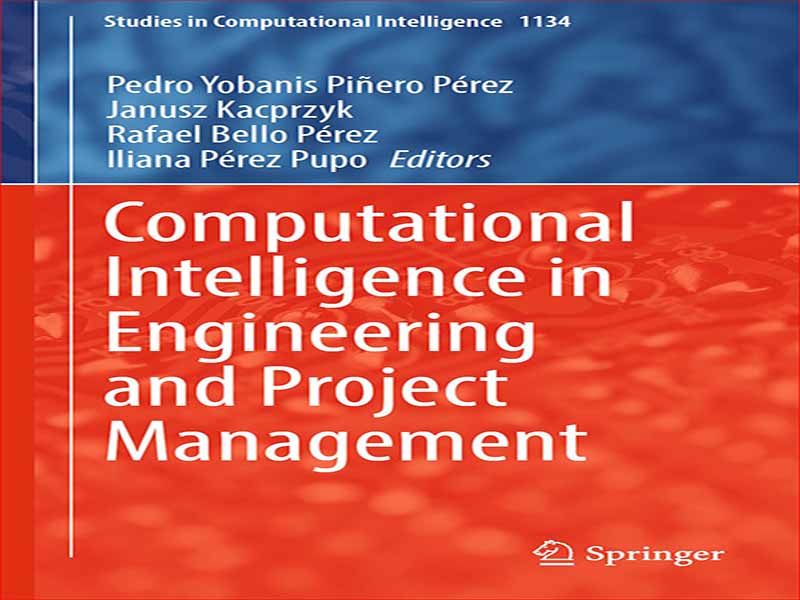- عنوان کتاب: Computational Intelligence in Engineering and Project Management
- نویسنده: Pedro Yobanis Piñero Pérez
- حوزه: هوش محاسباتی
- سال انتشار: 2024
- تعداد صفحه: 365
- زبان اصلی: انگلیسی
- نوع فایل: pdf
- حجم فایل: 9.04 مگابایت
Project management is being transformed through the introduction of different artifi-cial intelligence techniques. In each of the areas of knowledge in project management, new algorithms and techniques associated with computational intelligence are grad-ually introduced that facilitate the treatment of information uncertainty. Progress is gradually being made in digital transformation with an agile approach, which impacts the various areas of human knowledge that are managed by projects.
For example, in the construction sector, BIM technologies have become widespread and are gradually imposing themselves. In this way, the simulation in virtual environments of the complete execution of projects is facilitated. In this way, it is about mitigating the difficulties of traditional project management, where the following statistics are manifested. Around 34% of the resources invested during a project’s execution are misused and wasted. Approximately, 95% of the informa-tion that is generated in the project management process is later underused in new projects. This situation not only occurs in construction projects; in the case of soft-ware projects, several sources identify that, in medium-and large-sized projects, approximately 50% need to be renegotiated and 19% are canceled.
In this context, the main difficulties are associated with deficiencies in the decision-making processes. In addition, deficiencies persist in the control and moni-toring processes of the projects. In general, efforts to integrate project management technologies with computational intelligence and other intelligent data analysis tech-niques are still incipient. In this sense, many opportunities are identified for the introduction of techniques that facilitate the treatment of investment and agility in decision-making.
In this context, we describe Artificial Intelligence (AI) as the set of software and hardware techniques that simulate different human reasoning methods and the collective intelligence of natural ecosystems to solve complex problems where the algorithm for its solution has non-polynomial complexity, or there are no algorithms for its solution. Many authors use the terms computational intelligence and soft computing interchangeably to refer to the same set of techniques as a branch of artificial intelligence. In this sense, Computational Intelligence is presented as the branch of AI that encompasses various techniques aimed at simulating human toler-ance in decision-making processes in environments with uncertainty and impre-cision. Among the precursor techniques of computational intelligence are: evolu-tionary algorithms, artificial neural networks, fuzzy set theory and fuzzy systems. However, other areas such as the rough set, linguistic data summary, natural language processing, the conversational systems, fuzzy cognitive maps, collective intelligence, the neutrosophic theory and other fuzzy logic extensions are contributing to the appli-cation and extension of computational intelligence. This book presents a selection of papers with different experiences in the application of computational intelligence techniques to help decision-making in Project Management.
The book is organized into four parts according to the nature of the works presented.
این کتاب را میتوانید از لینک زیر بصورت رایگان دانلود کنید:
Download: Computational Intelligence in Engineering and Project Management



































نظرات کاربران